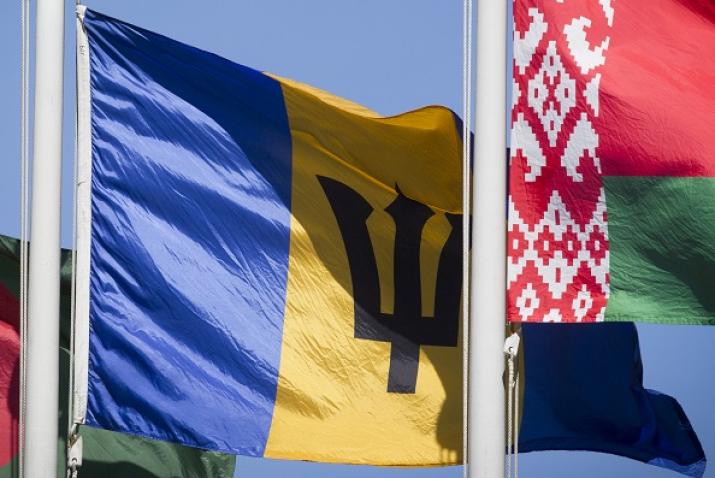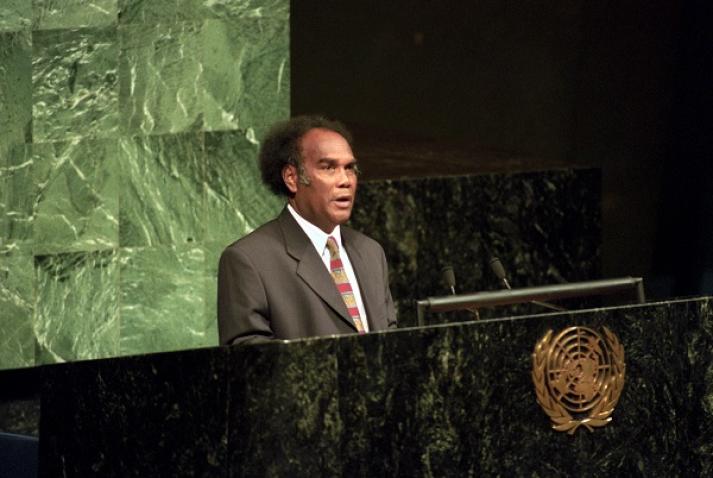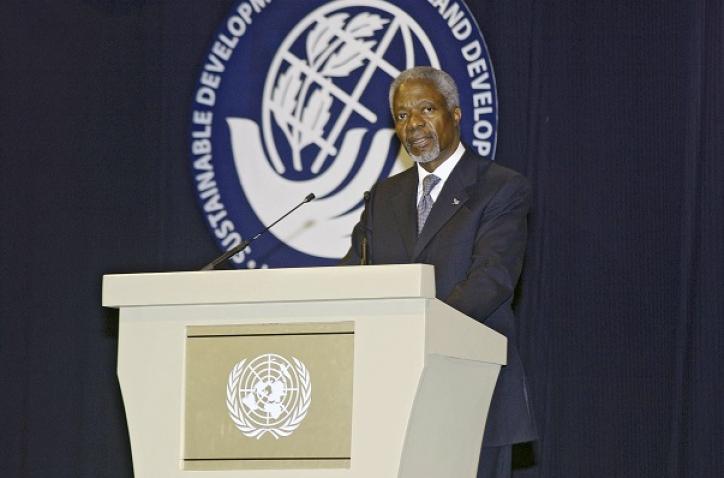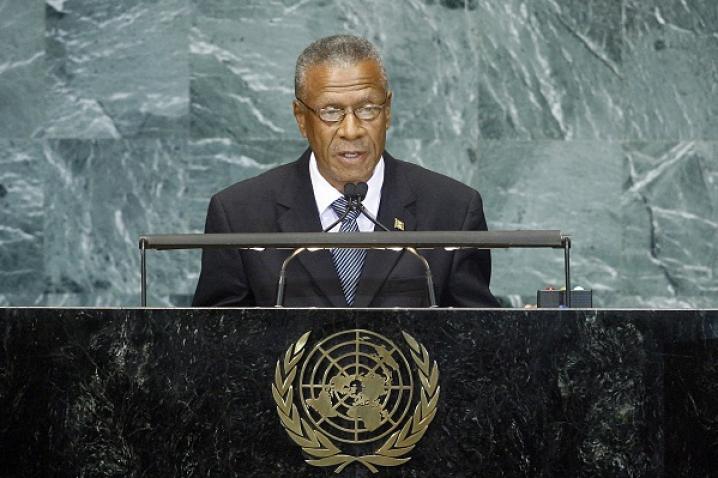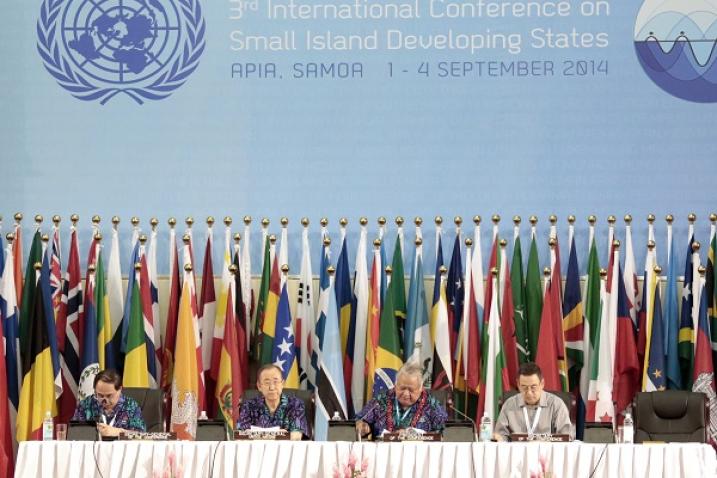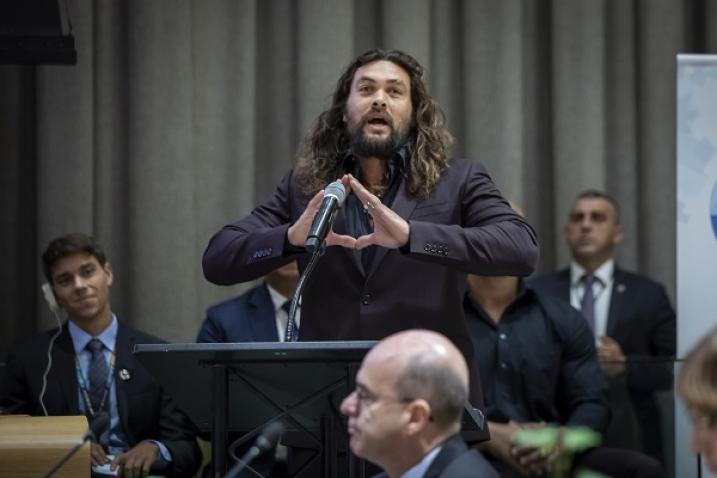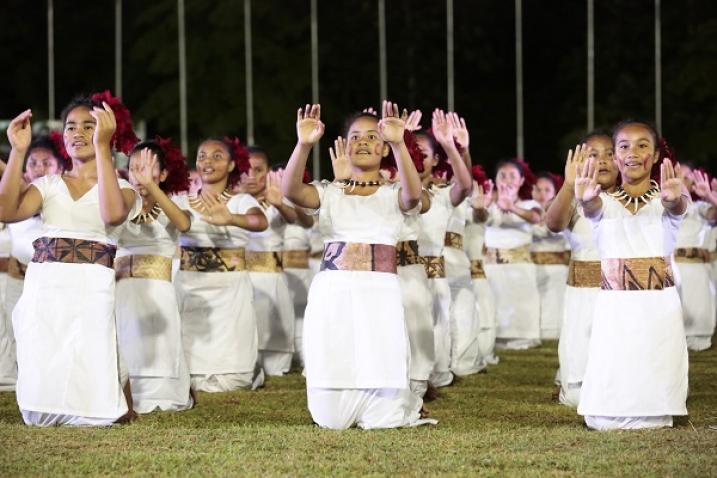BACKGROUND
Small Island Developing States (SIDS) were recognized as a distinct group of developing countries facing specific social, economic and environmental vulnerabilities at the United Nations Conference on Environment and Development (UNCED), also known as the Earth Summit, held 3-14 June 1992 in Rio de Janeiro, Brazil. This group of states comprises 38 UN Member States and 20 non-UN members/Associate Members of Regional Commissions (see below for complete list).
The Agenda 21 programme adopted at the Rio 'Earth Summit', stipulated in Chapter 17, that "States commit themselves to addressing the problems of sustainable development of small island developing States. To this end, it is necessary:
-
(a) To adopt and implement plans and programmes to support the sustainable development and utilization of their marine and coastal resources, including meeting essential human needs, maintaining biodiversity and improving the quality of life for island people;
-
(b) To adopt measures which will enable small island developing States to cope effectively, creatively and sustainably with environmental change and to mitigate impacts and reduce the threats posed to marine and coastal resources."
In April 1994, the Global Conference on the Sustainable Development of Small Island Developing States was held in Barbados as a follow-up to Agenda 21, to consider how small island states could find solutions to the environmental challenges they were facing. The Conference determined that sustainable development was the logical answer, and adopted the Barbados Programme of Action for Small Island Developing States, which identified priority areas and indicated the specific action that were necessary “to address the special challenges faced by small island developing States”. Several cross-sectoral areas were identified: capacity-building including human resource development/ institutional development at the national, regional and international levels/ cooperation in the transfer of environmental sound technologies/ trade and economic diversification and finance. The Plan noted that small island developing states were particularly vulnerable to global climate change, climate variability and sealevel rise and stated that “any rise in sealevel will have significant and profound effects on their economies and living conditions; the very survival of certain low-lying countries will be threatened.”
In 1999, the 22nd Special Session of the General Assembly was held to undertake a review and appraisal of the implementation of the Barbados Programme of Action. That Special Session adopted a State of Progress and Initiatives for the Future Implementation of the Programme of Action for the Sustainable Development of Small Island Developing States, which identified six sectoral areas requiring urgent action: climate change, natural and environment disasters and climate variability, freshwater resources, coastal and marine resources, energy, and tourism.
The International Meeting to Review the Implementation of the Programme of Action for the Sustainable Development of Small Island Developing States was held in Port-Louis, Mauritius, from 10-14 January 2005. Participants unanimously adopted the Mauritius Declaration and the Mauritius Strategy for the Further Implementation of the Programme of Action for the Sustainable Development of Small Island Developing States, which covered the following areas of concern: climate change and sea-level rise, natural and environmental disasters, management of wastes, coastal and marine resources, freshwater resources, land resources, energy resources, tourism resources, biodiversity resources, transportation and communication, science and technology, graduation from least developed country status, globalization and trade liberalization, sustainable capacity development and education for sustainable development, sustainable production and consumption, national and regional enabling environments, health, knowledge management and information for decision-making.
In 2010, the General Assembly decided to conduct a five-year review of the Mauritius Strategy during its 65th Session. At what was known as MSI+5, Member States noted the sustainable development challenges facing small island developing States, and their uneven progress towards realizing the Millennium Development Goals, and urged international financial institutions to give those States adequate access to concessionary financing for investment in sustainable development, and development partners to pay due attention to their unique vulnerabilities in trade and partnership agreements as well as trade preference programmes, so they could recover economically. The General Assembly called on the international community to continue bolstering support to help small island States adapt to climate change through financing, capacity-building and technology transfer.
The Third International Conference on Small Island Developing States (SIDS) was held in Apia, Samoa on 1-4 September 2014. At this conference the ‘Samoa Pathway’ (Small Island Developing States Accelerated Modalities of Action), a 10-year programme of action to promote international assistance to address the challenges facing small island developing states was adopted. The goal of the SAMOA Pathway action plan was sustainable development and poverty eradication. It comprised three interrelated dimensions of sustainable development - environmental, economic and social. The conference also established a unique intergovernmental SIDS Partnership Framework, designed to monitor progress and stimulate the launch of new, genuine and durable partnerships for the sustainable development of SIDS.
Iin September 2019, the General Assembly, at its 74th session, convened a one-day high-level meeting at UN Headquarters to review progress made in addressing the priorities of the small island developing States through the implementation of the SAMOA pathway. At the high-level meeting, world leaders acknowledged that after five years of the SAMOA Pathway implementation, small islands face significant challenges in accessing sufficient, affordable development financing, including concessional financing. Countries committed to exploring innovative and sustainable sources of financing, and discussed progress on combating the devastating impacts of climate change, building economic and environmental resilience, and other challenges, and announced new partnerships to support small island developing States.
WHICH STATES ARE IN THE SIDS GROUP?
There are 38 UN Member States and 20 non-UN members/Associate Members of Regional Commissions in the Small Island Developing States group.
UN MEMBER STATES (38):
Antigua and Barbuda, Bahamas, Bahrain, Barbados, Belize, Cabo Verde, Comoros, Cuba, Dominica, Dominican Republic, Fiji, Grenada, Guinea-Bissau, Guyana, Haiti, Jamaica, Kiribatii, Maldives, Marshall Islands, Mauritius, Micronesia (Federated States of), Nauru, Palau, Papua New Guinea, Saint Kitts and Nevis, Saint Lucia, Saint Vincent and the Grenadines, Sao Tomé and Principe, Samoa, Seychelles, Singapore, Solomon Islands, Suriname, Timor-Leste, Tonga, Trinidad and Tobago, Tuvalu, Vanuatu.
NON-UN MEMBERS/ASSOCIATE MEMBERS OF REGIONAL COMMISSIONS (20):
American Samoa, Anguilla, Aruba, Bermuda, British Virgin Islands, Cayman Islands, Commonwealth of Northern Marianas, Cook Islands, Curacao, French Polynesia, Guadeloupe, Guam, Martinique, Montserrat, New Caledonia, Niue, Puerto Rico, Sint Maarten, Turks and Caicos Islands, U.S. Virgin Islands
THE 'SAMOA PATHWAY' AND CLIMATE CHANGE
In the SAMOA Pathway outcome document of the third International Conference on Small Island Developing States in 2014 held in Apia, Samoa, Member States noted that climate change and sea-level rise continue to pose a significant risk to small island developing States and their efforts to achieve sustainable development and, for some, represent the gravest threat to their survival and viability. Member States called for support for the efforts of small island developing states to:
-
Build resilience to the impacts of climate change;
-
Improve the baseline monitoring of island systems and the downscaling of climate model projections to enable better projections of the future impacts on small islands;
-
Raise awareness and communicate climate change risks, including through public dialogue with local communities, to increase human and environmental resilience to the longer-term impacts of climate change;
-
Address remaining gaps in capacity for gaining access to and managing climate finance.

